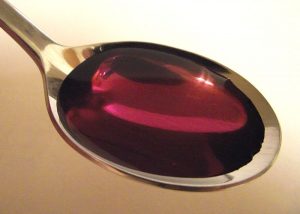Cough is one of the most obvious symptoms when we have a cold or any type of respiratory allergy. But even though it is just a symptom, it can be very bothersome and cause various difficulties in our daily lives. That’s why treatments like cough syrup have become so well-known. But is this medicine really effective? What are its effects? How should cough syrup be taken? We’ll answer all these and other questions in today’s article. But first, do you really know what a cough is?
What is a Cough?
Although we all know what a cough is, it’s important to also understand the processes behind this natural phenomenon that we’ve all experienced. A cough can be defined as the body’s response to some external agent. That’s why we can cough when we inhale a lot of smoke or when we’re sick, for example. In both cases, it’s our body detecting that there’s something wrong and, in some way, trying to expel it.A cough can be dry, known as an irritative cough. It gets this name exactly because it’s a response to some irritation of the larynx or pharynx. In some cases, a dry cough can be a sign of a viral infection.On the other hand, a cough with phlegm, or productive cough, normally occurs due to a bacterial infection in the body. If this type of cough lasts for more than two weeks, it’s important to see a doctor, as it could be a sign of a more serious lung problem.The most common type of cough is the one that comes along with some respiratory illness. And it’s mostly in these situations that the well-known cough syrup is used, although there are also syrups specifically for dry cough.
What is Cough Syrup?
Cough syrups are medications designed to soothe the throat and inhibit the agents that cause this symptom, even helping the secretions to be expelled more quickly from the body.Although they are sold over-the-counter, it is highly recommended that you only take this type of medicine after it’s been prescribed, since only a specialized doctor knows exactly which type of syrup to prescribe in each specific case.
Who is Cough Syrup indicated for?
In general, cough syrup is intended for people who have some type of infection, whether viral or bacterial, to relieve the symptoms of the illness. Some of the diseases that may require the use of syrup are:
- Flu
- Common cold
- Pneumonia
- Bronchitis attacks
- Tuberculosis
It’s important to stress that cough syrup acts as a way to relieve symptoms of these diseases and not as a cure for them. Someone who has pneumonia or even the flu will not be cured just by using cough syrup, although it can help the person feel better.
Types of Cough Syrup?
Since there are several situations in which someone might take syrup, there are also different types. The main types of cough syrup are:
- Dropropizine: Used for dry cough, helps relieve symptoms and throat irritation. It is recommended for adults.
- Bromhexine: Used for cough with phlegm, helps clear mucus more quickly and reduces coughing. Children should take a lower dose than adults.
- Mucosolvan: Mainly indicated for children, it reduces the viscosity of mucus produced by bacterial infections, which not only lessens the cough but also helps the person breathe better.
- Levodropropizine: Acts directly to reduce the effects of a dry cough, improving lung ventilation. It is recommended for both adults and children.
Of course, there are many other types of cough syrup. However, we’ve selected those we consider most important and which help explain the effects that most of the others also offer.
Are There Side Effects?
Since there are various types of cough syrup, the side effects of each one vary. However, it’s possible to give a general overview of the possible effects that can occur with improper use of this type of medicine. Some of them are:
- Drowsiness
- Cardiac arrhythmia
- Allergic reactions
- Attention disorder
- Heart attack
It’s important to emphasize that the most serious effects, such as heart attack, mainly occur when a person takes cough syrup at very high doses or if they belong to the contraindicated group.
Are There Any Contraindications?
Just as with side effects, the contraindications also vary depending on the type of syrup used. But we can also provide a general overview of people who should not take this type of medicine. The main contraindications are:
- People with low blood pressure
- Children under 2 years old
- People with heart problems
- People allergic to some component of the syrup
Regardless of whether or not it is indicated for you, our recommendation is that you do not take any of these medicines without first consulting your doctor. Only a professional can know how to actually relieve your symptoms and help you get better.Cough syrup can be a great medicine for relieving this kind of symptom, but some care is necessary to ensure its effects are properly felt. Also, it’s important to highlight that this type of medication does not provide a definitive cure for illnesses like the flu, for example, and you should see a doctor if several symptoms persist, as this could indicate another problem. In summary, cough syrup can be an excellent ally if you know how to use it.See also: What is Tonsillitis? Causes, Symptoms and Treatment












